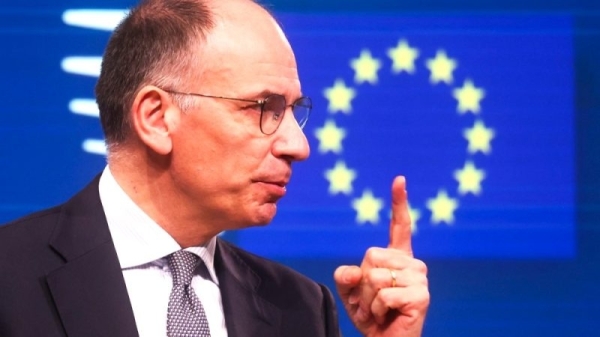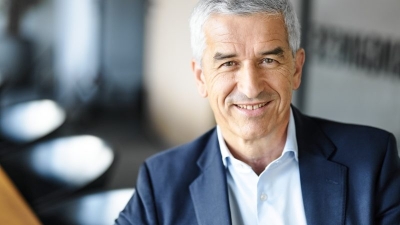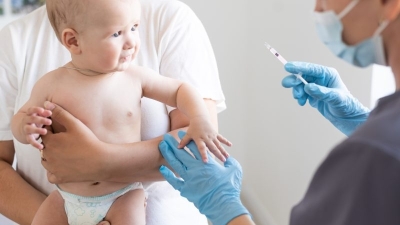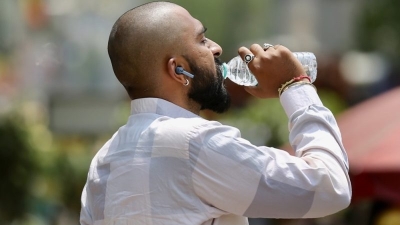EU, US should mull ‘transatlantic single market’ pact after elections – Letta

Europe and the United States should build a “transatlantic single market” to combat the “aggressive attitude” of much of the rest of the world, former Italian prime minister Enrico Letta, author of a strategic report on the EU’s single market, said on Tuesday (23 April).
Rising tensions with China, Russia’s ongoing war in Ukraine, and the rise of the BRICS group of countries as an independent political force makes it “impossible” to avoid strengthening economic ties between the EU and Washington, Letta told an event organised by the Investment Company Institute in Washington, DC.
“If we give a look to the world around us… it is impossible not to take the consequence to say: ‘Now it’s time for the US and Europe to sit and to start to try to create a transatlantic single market,’” he said.
Letta, who presented his much-anticipated report on the single market to EU leaders last week, admitted that the construction of a transatlantic market is not currently politically feasible but hoped this would change after the European and US elections later this year.
“What is happening today, with Russia, with China, with the BRICS, and the aggressive attitude towards the common US, EU vision of the world, I think we have to start thinking that it is necessary to open this dossier.”
“I hope the political environment… after the European elections and the US elections allows opening the discussion because, I repeat, the rationale brings [us] there,” he said.
‘We are in a completely different world’
Letta elaborated on his remarks at another event on Tuesday afternoon, organised by the US Chamber of Commerce and lobbying umbrella association BusinessEurope, where he stressed that “everything has changed” geopolitically over the last four years, especially with the rise of China and Russia and “economic threats”.
“The discussion about the role of the BRICs, the multilateral world, was completely different from today,” he said.
“Today we are in a completely different world… The world around us is working with a different approach to rule of law, challenging our democracies, challenging our idea of rule of law, saying that in autocracy we run better than in democracy.”
“This is the main challenge we are having, and we have to react together [to] these challenges because we believe we can be more competitive in democracy rather than in autocracy.”
Von der Leyen’s signals G7 thrust on trade
On Tuesday, European Commission President Ursula von der Leyen said Europe and its partners should take additional measures to address the “overcapacity produced outside the European Union” — a code for China’s state-subsidised production of solar panels, electric vehicles, and other high-tech goods.
Von der Leyen told a plenary session of the European Parliament in Strasbourg that the G7 group of countries — set to meet in Italy in June — is starting work to guarantee that its “producers are not at risk of being forced out of the market” by such “structural overproduction”.
“Let us never forget that Europe is a trading continent, and we derive a significant share of our prosperity from trade,” von der Leyen said.
“If it is true that in the next decade, 90% of the most significant growth is happening in regions outside Europe, we should tap into it,” she said, adding: “But trade needs to be fair. We need a global level playing field. And we need to address the risks that come with our openness.”
Her remarks echoed a speech delivered in Princeton earlier this month by Margrethe Vestager, the EU’s competition chief, who urged “like-minded partners, starting with the G7 countries” to develop “trustworthiness criteria” to determine when to exclude nations from benefiting from state subsidies.
Vestager also criticised the US Inflation Reduction Act, which offers more than a trillion dollars in green subsidies and tax credits to encourage green investments in North America, for “tying the criteria to local production, instead of trustworthiness”.
Read more with Euractiv




